News
-
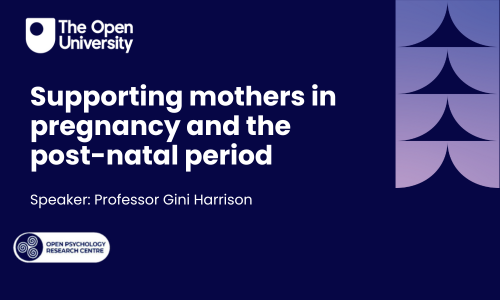
WATCH: Supporting mothers in pregnancy and the post-natal period - Professor Gini Harrison
Professor Gini Harrison hosted an OPRC Public Lecture on the perinatal period surrounding childbirth.
-
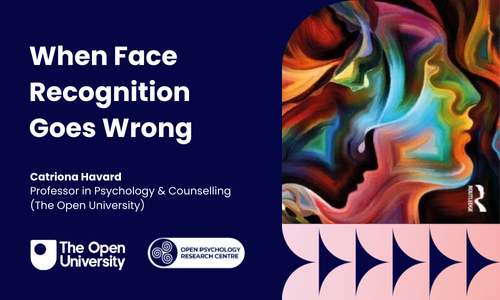
WATCH: When Face Recognition Goes Wrong - Professor Catriona Havard
This public talk will cover several of the key themes explored in Professor Havard’s book, including how and why face recognition fails, the cognitive biases involved, and the real-world consequences of these errors.
-

Apply for a funded PhD in the School of Psychology & Counselling at The Open University
Funded PhD studentships for study commencing in October 2026 are available in the School of Psychology & Counselling.
-
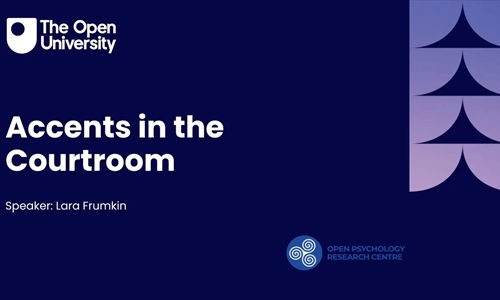
Accents in the Courtroom
A recording of the talk is now available online. In this Open Psychology Research Centre lecture, Professor Lara Frumkin gave a talk addressing the role accents play in how we perceive and make decisions about people.
-
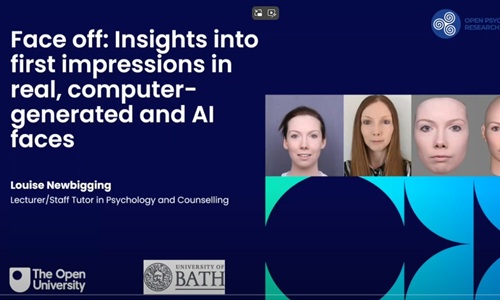
Face off: Insights into first impressions in real, computer-generate and AI faces
A recording of the talk is now available online. In this Open Psychology Research Centre Lecture, Louise Newbigging focused on the psychology of first impressions, particularly how they are formed through facial perception.
-
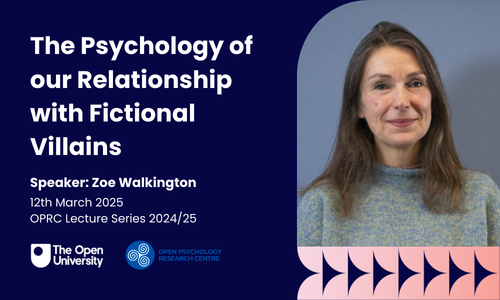
The Psychology of our Relationship with Fictional Villains
Professor Zoe Walkington discussed how readers form relationships with fictional villains and the real-world impact of these connections. She also introduced a free OpenLearn resource on the topic, co-authored with Professor Graham Pike and Siobhan Campbell.
-

OU Psychology academic secures funding for arts-based education to support disadvantaged children
Psychology academic has won EU funding for a research project which aims to enhance the lives of disadvantaged children through the active participation in art in education.
-
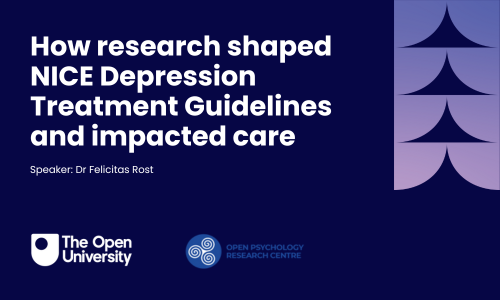
WATCH: How Research Shaped NICE Depression Treatment Guidelines and impacted care
In this talk, Dr Felicitas Rost will discuss the stakeholder campaign she initiated and led. She will begin by briefly summarizing the initial methodological issues, outline how stakeholders’ knowledge and expertise was used to advise NICE on necessary changes, and describe how these were received and addressed.
-

Social Psychology Professor is among the team of editors behind the special edition of ‘Human Affairs’
Professor Paul Stenner is among the team of editors behind the special edition of the journal Human Affairs, about revolutionary philosopher A.N. Whitehead's theories and their relevance to psychology and the social sciences today.
-

Fully Funded PhD Opportunities in Psychology on Gendered Violence Against Women on Social Media
The Centre for Protecting Women Online invites applications for a fully funded PhD studentship based in Psychology. The proposal is expected to address the topic of an online gendered violence against women and girls on Social Media.
The application deadline has now passed.
Request your prospectus
![]()
Explore our qualifications and courses by requesting one of our prospectuses today.



